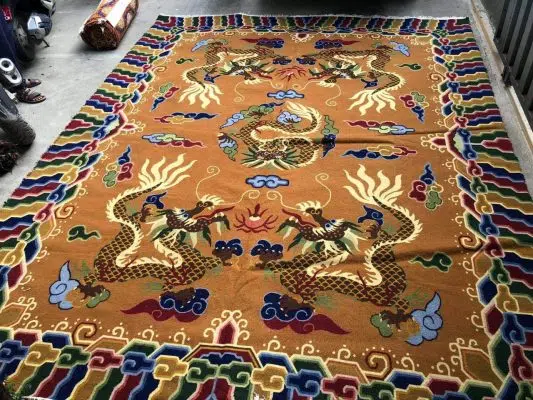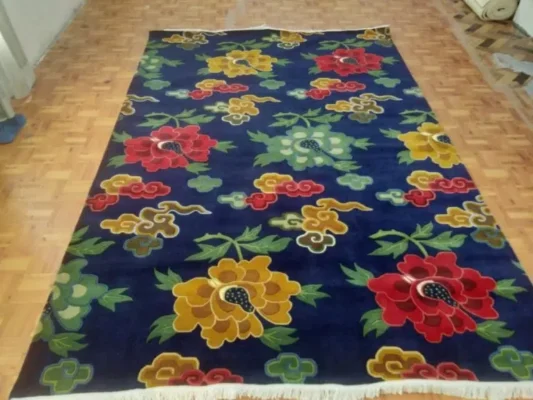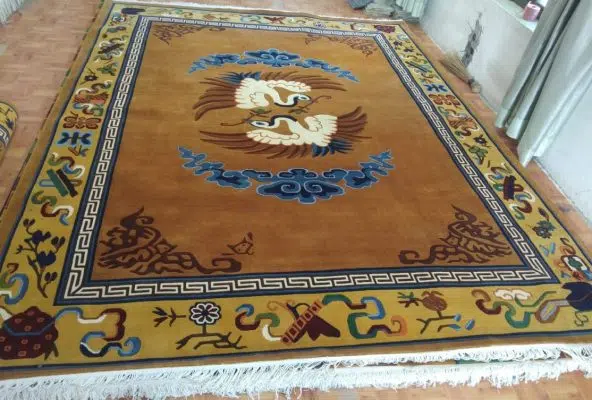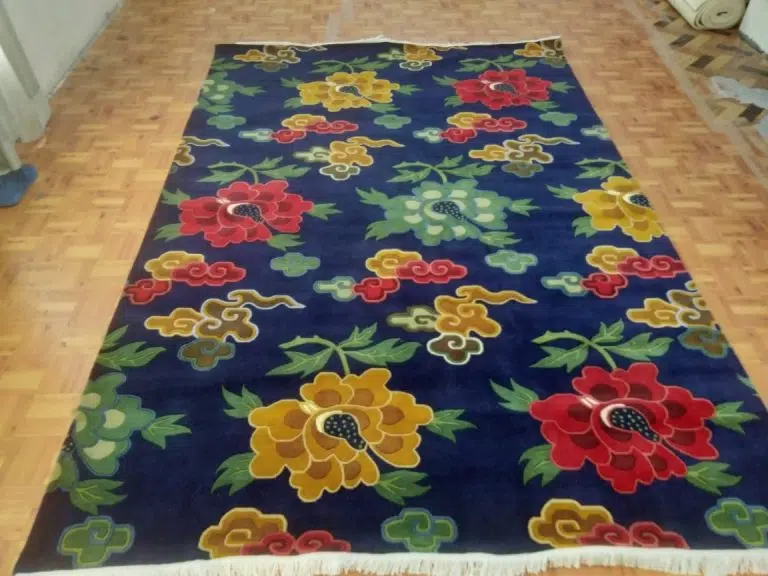Blog
Organic Wool Carpets
![]()
Table of Contents
Organic Wool Carpets
1. Introduction: Organic Wool Carpet
Organic wool carpet are more than just a flooring choice; they represent a commitment to sustainability, quality, and health. As the demand for eco-friendly products continues to grow, organic wool carpets have become a popular choice for homeowners seeking a blend of luxury and environmental responsibility. Unlike conventional carpets made from synthetic materials, organic wool carpets are crafted from natural, renewable resources that are free from harmful chemicals. In this comprehensive guide, we will explore the world of organic wool carpet, delving into their benefits, production process, design options, and much more.

2. What is Organic Wool?
Organic wool is sourced from sheep that are raised in environments that adhere to strict organic farming standards. This means no synthetic pesticides, herbicides, or fertilizers are used on the land where the sheep graze. The wool is harvested through humane practices, ensuring the well-being of the animals. Additionally, the processing of organic wool, from cleaning to dyeing, avoids the use of harmful chemicals, making it a safer and more sustainable choice for consumers.
3. Benefits of Organic Wool Carpets
Organic wool carpets offer a multitude of benefits that go beyond aesthetics. Environmentally, they contribute to a reduction in carbon emissions, as the farming and production processes are more sustainable. Health-wise, organic wool is hypoallergenic and free from toxic substances, making it ideal for homes with children, pets, or individuals with allergies. Wool is also known for its durability, resisting wear and tear better than many other fibers, ensuring that organic wool carpets are a long-lasting investment.

4. The Process of Making Organic Wool Carpet
The journey of an organic wool carpet begins with the careful selection of wool from organically raised sheep. This wool is then spun into yarn, dyed using natural dyes, and woven into intricate patterns by skilled artisans. Whether hand-knotted or machine-made, the craftsmanship involved in creating organic wool carpets is evident in their quality and design. The final product undergoes rigorous quality checks to ensure it meets organic certification standards before reaching the consumer.
5. Design and Style Options
Organic wool carpets are available in a wide range of designs, from traditional motifs to modern patterns. The natural colors of wool, combined with organic dyes, provide a rich palette that can complement any interior decor. Customization is also an option, allowing customers to create bespoke designs tailored to their specific needs and preferences. Whether you’re looking for a minimalist rug or a statement piece, organic wool carpets offer endless possibilities.

6. Sustainability of Organic Wool Carpet
Sustainability is at the core of organic wool carpets. Wool is a renewable resource, and the organic farming practices used to raise the sheep contribute to soil health and biodiversity. Additionally, wool carpets are biodegradable, meaning they will not contribute to landfill waste at the end of their lifecycle. By choosing organic wool carpets, consumers can support ethical production practices and reduce their environmental footprint.
7. Comparing Organic Wool Carpet with Other Carpet Materials
When compared to synthetic fibers, organic wool carpets offer superior comfort, durability, and sustainability. Wool’s natural properties, such as its ability to regulate temperature and resist fire, make it a safer and more versatile option. While organic wool carpets may come with a higher initial cost, their longevity and the health benefits they offer make them a worthwhile investment.
8. Caring for Organic Wool Carpet
Proper care is essential to maintaining the beauty and longevity of organic wool carpets. Regular vacuuming, prompt stain removal, and occasional professional cleaning will keep the carpet looking its best. It’s also important to rotate the carpet periodically to ensure even wear, especially in high-traffic areas.
Also visit:-
9. Where to Buy Organic Wool Carpet
Organic wool carpets can be found in specialty stores, online marketplaces, and through eco-friendly brands that prioritize sustainability. When purchasing an organic wool carpet, it’s important to verify the certification of the product and the reputation of the seller. Look for brands that are transparent about their sourcing and production processes.
10. Customer Testimonials and Case Studies
Many customers who have chosen organic wool carpets speak highly of their durability, comfort, and aesthetic appeal. Case studies often highlight the long-term benefits of these carpets, including their positive impact on indoor air quality and overall well-being. Testimonials can provide valuable insights into the real-world performance of organic wool carpets.
11. Challenges and Considerations
While organic wool carpets offer numerous benefits, there are some challenges to consider. The higher cost can be a barrier for some consumers, and the availability of specific designs may be limited. Additionally, caring for organic wool carpets requires attention to detail, as improper cleaning methods can damage the fibers.
12. Conclusion
Organic wool carpets represent a fusion of luxury, sustainability, and health-conscious living. By choosing organic wool, consumers can enjoy the benefits of a high-quality, eco-friendly carpet that will enhance their home’s comfort and style for years to come. With the information provided in this guide, you’re now equipped to make an informed decision about investing in an organic wool carpet that aligns with your values and lifestyle.
FAQs with answers on Organic Wool Carpets:
1. What is an organic wool carpet?
An organic wool carpet is made from wool that is sourced from sheep raised according to organic farming standards. These standards prohibit the use of synthetic pesticides, herbicides, and fertilizers on the pastures where the sheep graze, and the wool is processed without harmful chemicals.
2. How is organic wool different from regular wool?
Organic wool is sourced from sheep raised without synthetic chemicals, ensuring a more environmentally friendly and humane process. Regular wool, on the other hand, may come from sheep treated with synthetic pesticides and may involve wool processing with harsh chemicals.
3. Why should I choose an organic wool carpet?
Choosing an organic wool carpet supports sustainable farming practices, reduces environmental impact, and provides a healthier indoor environment due to the absence of toxic chemicals. Organic wool is also naturally durable and hypoallergenic.
4. Are organic wool carpet more expensive than regular wool carpets?
Organic wool carpets can be more expensive than regular wool carpets due to the higher costs associated with organic farming and certification processes. However, they are a worthwhile investment due to their durability, health benefits, and environmental impact.
5. How are organic wool carpet made?
Organic wool carpet are made from wool sourced from organically raised sheep. The wool is spun into yarn, dyed with natural or low-impact dyes, and woven into carpets using traditional or modern techniques. The entire process adheres to strict organic standards.
6. Are organic wool carpet durable?
Yes, organic wool carpet are highly durable. Wool is a naturally resilient fiber that resists wear, tear, and stains, making organic wool carpets a long-lasting choice for your home.
7. What are the environmental benefits of organic wool carpet?
Organic wool carpet have several environmental benefits, including reduced carbon emissions, sustainable land use, and biodegradable materials. The organic farming practices used to raise the sheep also contribute to soil health and biodiversity.
8. Are organic wool carpet hypoallergenic?
Yes, organic wool carpet are naturally hypoallergenic. They are resistant to dust mites, mold, and mildew, making them an excellent choice for individuals with allergies or asthma.
9. Do organic wool carpets have a natural scent?
Organic wool carpet may have a faint natural scent from the wool, but this is generally mild and non-offensive. The scent often fades over time and is a sign of the wool’s purity.
10. Can I get organic wool carpet in custom designs?
Yes, many manufacturers offer customization options for organic wool carpet. You can choose from various designs, colors, and sizes to match your specific needs and preferences.
11. How do I clean and maintain an organic wool carpet?
Regular vacuuming and prompt spot cleaning are essential for maintaining an organic wool carpet. For deeper cleaning, professional services are recommended to ensure the wool fibers are not damaged.
12. Are organic wool carpet resistant to stains?
Wool is naturally resistant to stains due to its water-repellent properties. However, it’s still important to clean up spills quickly to prevent any potential staining on organic wool carpet.
13. Where can I buy organic wool carpet?
Organic wool carpet can be purchased from specialty stores, eco-friendly brands, online marketplaces, and some local artisans. Be sure to verify the organic certification when making a purchase.
14. Do organic wool carpets shed?
Like all wool carpets, organic wool carpets may shed slightly, especially when new. This is a natural process and usually decreases over time with regular vacuuming.
15. What certifications should I look for in an organic wool carpet?
Look for certifications such as Global Organic Textile Standard (GOTS) or Organic Content Standard (OCS) to ensure the wool used in the carpet meets organic standards.
16. Can organic wool carpet be used in high-traffic areas?
Yes, organic wool carpets are suitable for high-traffic areas due to their durability and resilience. They are an excellent choice for living rooms, hallways, and other busy spaces.
17. Are organic wool carpet safe for pets?
Organic wool carpet are safe for pets. They are free from harmful chemicals and dyes, making them a healthy and comfortable option for your furry friends.
18. Do organic wool carpet fade over time?
Organic wool carpet may fade slightly over time, especially if exposed to direct sunlight. However, this is a natural process and can be minimized by rotating the carpet and using window coverings.
19. How long do organic wool carpet last?
With proper care, organic wool carpet can last for decades. Wool is a naturally durable fiber, and organic wool carpets are known for their longevity and resilience.
20. Are organic wool carpet biodegradable?
Yes, organic wool carpet are biodegradable. At the end of their life cycle, they will naturally decompose, returning to the earth without contributing to landfill waste.
21. Can organic wool carpet help regulate indoor temperature?
Yes, wool is a natural insulator. Organic wool carpet can help regulate indoor temperature by keeping spaces warm in the winter and cool in the summer.
22. Are organic wool carpet flame-resistant?
Wool is naturally flame-resistant, and organic wool carpet inherit this property. They are safer than synthetic carpets, which can be highly flammable.
23. Can organic wool carpet be used with underfloor heating?
Yes, organic wool carpet can be used with underfloor heating. Wool’s natural insulating properties make it compatible with underfloor heating systems.
24. What are the color options for organic wool carpet?
Organic wool carpet are available in a wide range of colors, including natural wool shades and colors derived from organic or low-impact dyes. Custom colors may also be available.
25. How can I verify that a wool carpet is truly organic?
To verify that a wool carpet is organic, check for certifications such as GOTS or OCS. Additionally, ask the retailer or manufacturer about their sourcing and production practices to ensure they align with organic standards.
Contact Us:-
ADDRESS
Loktantrik Chowk, Nakhipot-14, Lalitpur, Nepal
CONTACT HOURS
Sunday to Saturday 24/7
E-MAIL yuna.handicrafts@gmail.com
PHONE +977 9851-131344 (WhatsApp)



